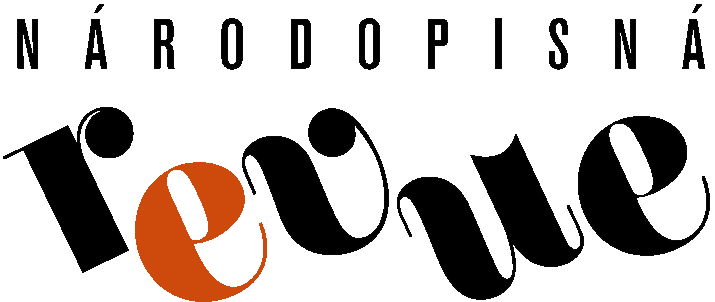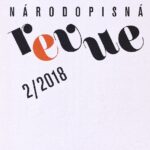Journal of Ethnology 2/2018 deals with the theme “Free Time as a Subject-Matter of Ethnological Studies”. Lidija Vujačić analyses free time from the perspective of a newly evolving “culture of needs”, conditioned by the present-day influence of mass-media (The Phenomenology of Free Time and Homo Consumens). Ľubica Voľanská focusses on free time related to the retirement and on new social roles which are caused by this milestone in people’s lives ("We Are Getting Old Whilst Always Doing Something...": Retirement as Free Time?). Joanna Maurer writes about leisure time of Polish migrants as a factor reflecting the level of their integration (Migrants’ Leisure with the Example of Poles in Brno). From the perspective of anthropology and its understanding of music as a social act, Anežka Hrbáčková presents research among participants in meetings aimed at music and dance folklore (Folklore Party: “Folklorists” in Prague as a Cultural Cohort). Kateřina Černíčková focussed on the development of competitive shows within the Czechoslovak and Czech folklore movement as a specific leisure activity (Czechoslovak Shows and Contests of Folk Ensembles in the Second Half of the 20th Century: a Mirror of an Era and Creative Approaches).
The Transforming Tradition column publishes an article by Alena Schauerová, which analyses the results of a multi-annual project “Here We Are at Home – Regional Folklore to Schools”. Review Section remembers two hundred years from the death of the collector Jan Bohumír Prač (also Ivan Práč), and one hundred years from the death of the Czech ethnologist Karel Fojtík. In Interview Section, Marta Šrámková introduces the prominent Polish folklorist Dorota Simonides. Social Chronicle remembers the anniversaries of the ethnologists Irena Štěpánová (born 1948) and Jarmila Pechová (born 1958), and it publishes an obituary for the collector of folk songs and dances Milada Bimková (1926-2018). The Journal also includes reports from shows and concerts, and reviews of new books.
Anthropology of Everyday Life and a Phenomenon of Leisure
The free time (leisure) phenomenon is an increasingly inspiring theme in anthropological discourse, especially in the so-called anthropology of everyday life. First of all, free time fills media content, creating a new "culture of needs" represented, mostly, through consumeristic (materialistic) values, since consumption is embedded in everyday patterns of behavior and is in constant interaction with technology and new types of media. And our identity, through the mentioned spheres, is "defined" first within the (daily) free time. It is shaped by rest, fun, creative processes, but also leisure, consumption. In the postmodern era, Z. Lipovetsky observes, and "a kind of democratization of hedonism", in the sense that new spaces are opened without prior exclusivity, and the boundaries between styles, purposes, values become relative, in everyday life both in the sphere of art, in the economy, politics, etc. Thus, the usual daily dynamics, as a kind of practical policy, becomes an anthropological interest, especially through cultural studies, which emphasize topics from the popular, media and consumer culture, at the local and global level, maintaining an active attitude towards reality.
"We Are Getting Old Whilst Always Doing Something...": Retirement as Free Time?
The paper focuses on the phenomenon of free time or leisure time in retirement, as these phrases are often perceived as equivalents in public discourse in European space. Research shows, however, that in reality, the life of people in retirement is filled with various activities that usually do not have to be classified as leisure activities. In line with the concept of third age as an age of fulfilment, the concept of active or successful ageing and the concept of busy ethics, the paper deals with the way how people obtain different roles when they do not have to, but they still do. The choices or decisions about retirement are undoubtedly influenced by the discussion of the right to leisure, the increasing value of leisure time and the re-evaluation of the value of work in personal and social life, on the one hand, and some pressure to continue to be beneficial to society and active on the other. The author concentrates on how the sketched discussion is reflected by a group of people who, especially in the European environment, are becoming due to the demographic development more and more numerous – the oldest generation in society. They are confronted with two different attitudes at the opposite end of the value spectrum. The empirical basis for the study is qualitative research based on ethnographic interviews with pre-retirement and retired people in nowadays Slovakia, with a specific theme on preparing for retirement and living in retirement, as well as the results of several focus groups with this group of people..
Migrants’ Leisure with the Example of Poles in Brno
The article focusses on the analysis of migrants’ leisure activities with the example of Polish minority in Brno. Based on participant observation and interviews with Polish migrants who spent at least one year in Brno, it is possible to reveal the diversity in leisure activities as well as common trends occurring during free time. Migrants’ understanding of free time in their new destination is encumbered by the context of the place of origin and the customs formed there. The analysis of migrants’ leisure activities shows the level of migrants’ integration and their interest in active participation in the life in their new environment. During their free time, they maintain contacts with their country of origin – family, friends, and cultural background. Migrants’ specific habitus is created, which can be implemented due to their stay “here” and “there” (most migrants use their free time to travel home), and the trans-national identity is constructed. Free time also becomes a space for more or less official meetings of Poles within their own language and ethnic group.
Folklore Party: “Folklorists” in Prague as a Cultural Cohort
The study focusses on the community of people who deal with musical and dance folklore. The author builds on the musical-anthropological conception of music as a social act, and she applies the concepts of Caroline Bithell´s and Jennifer Hill´s music revivals and Thomas Turin´s cultural cohort on the researched field. She defined the field by a musical-dance event which currently takes place regularly in Prague and which has been called “Folklore Party” by its organizers. She specifies the event as an interconnection between the world of modernity, which the life in the Czech metropolis offers, and the world of folk traditions (folklore). Through participant observation and semi-structured interviews, she studies the way of bargaining the concepts of authenticity and legitimacy, their granting to particular participants and entities, and in general how the event´s participants construct the folklore and what the resulting construct looks like. Prague as a fluid musical environment makes it possible to create and bargain traditions (in Henry Glassie´s concept) running in different directions. One of the traditions which are of recursive nature and which serve the participants to construct meanings and to implement a socio-cultural change relates to the concept of folklore. As understood by my informers, folklore music has a potential to be confronted with the pressure of modernity, thanks to other levels which are also described in the study and which the folklore music includes.
Czechoslovak Shows and Contests of Folk Ensembles in the Second Half of the 20th Century: a Mirror of an Era and Creative Approaches
The study deals with staged folk dances in the Czech cultural context. The main goal is to observe the development of the national and state-wide contest/show of folklore ensembles as an important phenomenon associated with the development of artistic values of the specific Czechoslovak staged genre in the second half of the 20th century. The author explains the history of this phenomenon, which is unique in many respects, with all its positions of thinking, internal discrepancies and transformations in deliberations. Especially in the 1950s and in connection with the staged presentation of folk dances, matters relating to the period cultural-political tendencies were brought to the forefront; these, however, weakened in the 1960s, and it was folk ensembles´ own production that became the major preoccupation at that time. This broad platform appears to have been the basis for a significant stream of thinking within folklore movement, which over time has brought the staged folk dance to the form that essentially differs from how the staged folk dance is understood in other countries.



